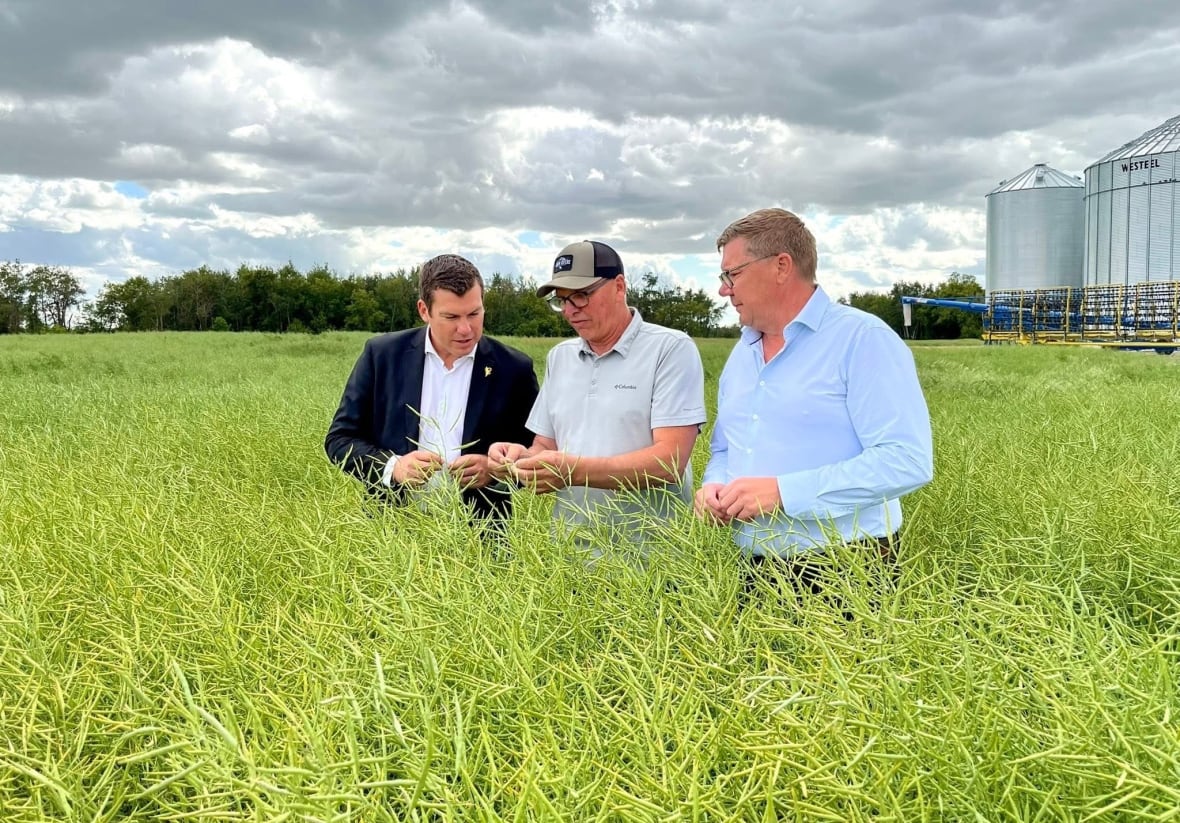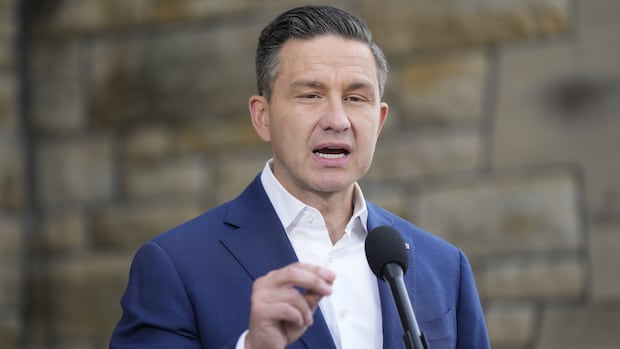The president of the Canola Council of Canada says new funding announced this week by Prime Minister Mark Carney “misses the mark” on what the industry needs right now in the face of a steep Chinese tariff.
“We don’t believe there’s been proper recognition of extensive impacts on the rest of the canola value chain,” Chris Davison said on Rosemary Barton Live. “We have exporters and processors who have assets, facilities and infrastructure that is under duress right now.”
He added: “And there was nothing specifically that was speaking to that.”
Carney pledged on Friday to introduce new biofuel production incentives and provide more than $370 million to assist domestic canola producers.
The prime minister also said he would amend Canada’s Clean Fuel Regulations to spur development of a Canadian biofuel industry, increase loan limits for canola producers to $500,000 and invest in trade diversification measures to support agriculture sectors.
Prime Minister Mark Carney announced a series of measures in a lengthy speech Friday, including funds for retraining workers and tariff-hit businesses, as well as a ‘comprehensive’ policy to buy Canadian products, saying businesses and employees are facing a ‘rupture’ in the trade environment.
The measures were in response to China after it hit Canadian canola with a 75.8 per cent tariff last month — a move widely seen as a counterattack to Canada’s 100 per cent tariff on Chinese electric vehicles.
Davison told host Rosemary Barton that the canola industry “is not about subsidies and is not looking for subsidies,” adding that “the longer these tariffs remain in place, the more significant, the more negative, the more widespread the impact will be.”
Rob Stone, a Saskatchewan-based canola farmer, estimated that if he lost a dollar a bushel due to the Canada-China trade war, it could cost his farm $150,000 on its canola production this year.
“And that may or may not be a number. There’s just so many different impacts that it’s really difficult to understand. And it’s only going to get worse if we can’t do trade with our largest market,” he said.
Although he appreciates Canada’s planned biofuel investments, Stone said they can’t replace the simple issue that China is Canada’s largest canola market.
At this time, Stone said, he can’t bail on growing canola because plans are already set for next year’s crop rotation. But he said he still has trust in the federal government to solve the ongoing trade war.
China extends Canada canola probe
On Friday, China announced it is prolonging its probe into Canadian canola imports, buying six more months for negotiations between the two countries.
The Ministry of Commerce said the anti-dumping probe would now run until March 9, 2026, citing the complexity of the case, a statement indicated.
The announcement came shortly before Saskatchewan Premier Scott Moe and Carney’s parliamentary secretary, Kody Blois, flew to China to meet with officials and discuss trade issues.

Last month, Moe said he believes Canada should remove tariffs on Chinese electric vehicles but make sure Canadians stay in good graces with U.S. officials. Canada’s Chinese EV tariffs came in lockstep with a move by then-U.S. president Joe Biden.
But Moe’s proposal has faced pushback from federal Conservative Leader Pierre Poilievre, who told reporters on Friday that he “respectfully disagrees” with Moe’s point because Chinese EVs are a security risk and would be a “strategic problem” for the country.
The canola council’s Davison said his group has noticed that Canada and its provinces are engaging more with the Chinese government, which is an “encouraging sign” and a prerequisite for addressing the issue at hand.
Conservative Leader Pierre Poilievre says he wouldn’t remove tariffs on Chinese electric vehicles to push China to lift its tariffs on Canadian canola. He said having Chinese vehicles on Canadian streets would be a strategic error.
Davison said he isn’t sure if dropping tariffs on Chinese EVs would make the canola issue in Canada disappear altogether but that the idea should be considered as the Canadian government works toward a resolution with China.
“Tariffs definitely need to be considered from a Canadian perspective, but we really need to understand what it’s going to take to resolve this issue and then decide what levers we need to pull to get that done,” he said.







